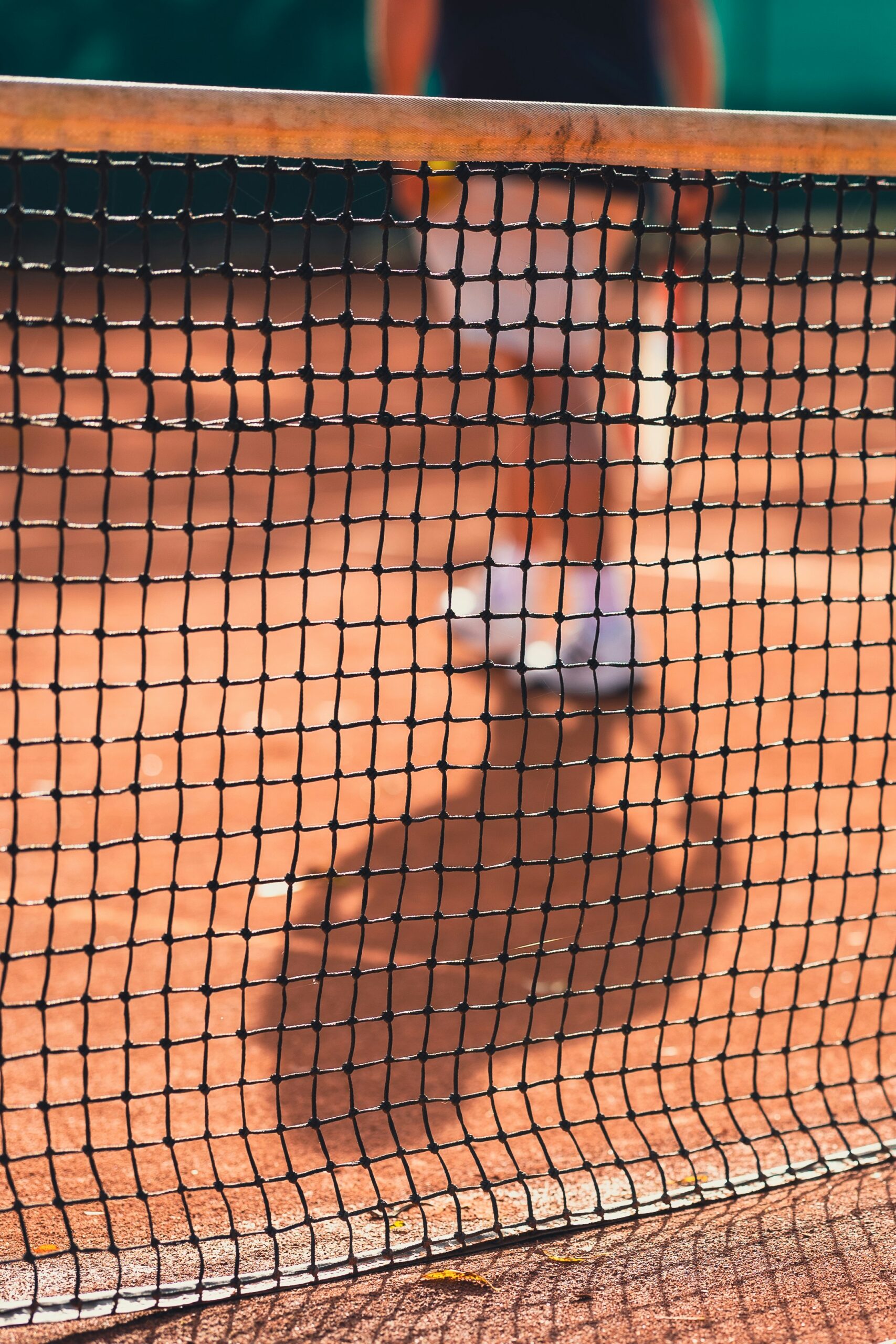So you want to help your kids improve their tennis skills and develop a strong tennis IQ? Look no further! In this article, we will provide you with five valuable tips that will not only help your kids anticipate opponent moves but also enhance their overall game. From studying professional matches to focusing on footwork and strategy, these tips are guaranteed to take your kids’ tennis game to the next level. Get ready to see your little athletes excel on the court as they develop their tennis IQ and become the next tennis prodigies!
1. Understand the Game
To develop a strong tennis IQ, it is crucial to first have a clear understanding of the game. Start by learning the basic rules and scoring system of tennis. Understand how points are awarded, how games and sets are won, and the various penalties and fouls. This foundational knowledge will provide the framework for your development as a tennis player.
In addition to the rules, it is important to study different tennis strokes and strategies. Familiarize yourself with the different types of shots, such as forehand, backhand, serve, volley, and drop shot. Understand when and how to use each shot effectively. Study the techniques of professional players and try to emulate their form. By observing and analyzing their strokes, you can gain valuable insights into the game.
Watching professional matches is another effective way to enhance your tennis IQ. Pay close attention to the strategies employed by the players, their shot selections, and the tactics they use to gain an advantage. Analyze the patterns in their game and try to understand the reasoning behind their decisions. By immersing yourself in the world of professional tennis, you can glean valuable knowledge and insights that will contribute to your own development as a player.
2. Focus on Court Awareness
Court awareness is a key component of a strong tennis IQ. Develop spatial awareness by familiarizing yourself with the dimensions of the tennis court. Pay attention to the lines and boundaries and train yourself to have a clear sense of your positioning on the court at all times.
Footwork is another crucial aspect of court awareness. Improve your footwork by practicing agility drills that require quick and precise movements. Develop the ability to anticipate the movement of the ball and position yourself in the most advantageous spot on the court.
To enhance your court awareness, learn to judge the speed and trajectory of the ball. By carefully observing the ball from the moment it leaves your opponent’s racket until it reaches you, you can anticipate its movement and adjust your positioning accordingly. This will give you a competitive edge by allowing you to react more quickly and effectively to your opponent’s shots.
Practice court positioning based on game situations. Understand the different positions you should adopt when your opponent is serving, returning a shot, or in various other scenarios. By positioning yourself strategically, you can optimize your chances of success and put pressure on your opponent.
3. Enhance Tactical Thinking
Tennis is a game of strategy, and developing a strong tennis IQ requires the ability to think tactically. To do this, start by identifying your opponent’s strengths and weaknesses. Observe their style of play, their preferred shots, and their strategies. This knowledge will allow you to adapt your game plan to exploit their weaknesses and neutralize their strengths.
Analyze patterns in your opponent’s game. Notice any consistent shots or strategies they employ. By recognizing these patterns, you can anticipate their moves and adjust your positioning and shot selection accordingly. This will give you a significant advantage and enable you to dictate the flow of the game.
Develop a repertoire of shot variations to keep your opponents guessing. Train yourself to execute a wide range of shots, including topspin, slice, and drop shots. By varying your shots, you can disrupt your opponent’s rhythm and force them to make errors. This element of unpredictability will make you a more formidable player.
4. Improve Decision Making
In the fast-paced world of tennis, split-second decision making is crucial. Train yourself to make quick and accurate decisions under pressure. Practice drills that simulate game situations and require you to react and make decisions quickly. This will improve your ability to think on your feet during matches.
Learning to choose the right shot or strategy in different situations is a key aspect of improving decision making. Understand the strengths and weaknesses of each shot and assess the game situation to determine the most appropriate option. By making intelligent shot selections, you can increase your chances of success and gain an advantage over your opponents.
It is also important to develop the ability to adapt and change game plans on the fly. Tennis matches are dynamic and can shift in momentum. Learn to recognize when a particular strategy is not working and be willing to adjust your approach. This flexibility will enable you to respond effectively to changing situations and maintain a competitive edge.

5. Play Competitive Matches
To truly develop a strong tennis IQ, it is important to gain experience through playing competitive matches. Participate in local tournaments and leagues to test your skills against different opponents. Playing against individuals with varying playing styles will challenge you and expose you to different game situations, thereby broadening your tennis IQ.
After each match, take the time to analyze the outcome and identify areas of improvement. Reflect on the strategies and decisions you made during the match and consider alternative options that may have led to a better outcome. This self-reflection is an invaluable tool for enhancing your tennis IQ. By learning from your mistakes and capitalizing on your successes, you can continually refine your approach and become a more proficient player.
6. Learn from Experienced Coaches
Seeking guidance from experienced tennis coaches is essential for developing a strong tennis IQ. Coaches can provide valuable insights and expertise that will accelerate your growth as a player. They can offer feedback on your strategy and decision making, helping you refine your approach and identify areas for improvement.
Follow personalized training plans provided by your coach to enhance your tennis IQ. These plans will be tailored to your specific needs and goals, and they will provide a structured framework for your development. By consistently following these plans, you can target specific areas of improvement and optimize your progress.
7. Engage in Mental Training
Tennis is not just a physical game; it also requires mental strength and focus. Engaging in mental training exercises can help you develop the mental fortitude needed to succeed on the court. Practice techniques such as visualization, where you imagine yourself executing successful shots and strategies. This will enhance your ability to anticipate opponent moves and make split-second decisions.
Developing focus and concentration is crucial for maintaining a strong tennis IQ. Train yourself to block out distractions and maintain unwavering focus on the game. This will enable you to react quickly and effectively to your opponent’s shots and make the right decisions.
Emotional management is another important aspect of mental training. Learn to manage your emotions and stay calm during matches, as losing control can cloud your judgment and impair your decision-making abilities. By maintaining a calm and composed demeanor, you can think more clearly and make better choices on the court.

8. Foster Teamwork and Communication Skills
Don’t forget about the importance of doubles matches in developing a strong tennis IQ. Doubles matches require teamwork and effective communication with your partner. Practice playing doubles to improve your ability to work collaboratively with a teammate. Communicate with your partner to develop strategies, coordinate your positioning, and execute effective shot selections. Learning to effectively communicate and cooperate with a partner will not only enhance your doubles game, but it will also improve your overall tennis IQ.
Additionally, learning to listen and interpret instructions from coaches is crucial for your development as a player. Coaches may provide guidance and offer insights into game strategies. By actively listening to their instructions and implementing their advice, you can refine your game and elevate your tennis IQ.
9. Emphasize Physical Fitness
Physical fitness is an integral aspect of developing a strong tennis IQ. Focus on improving your agility, speed, and endurance through conditioning exercises. Incorporate activities such as sprint drills, agility ladder work, and interval training into your fitness routine. These exercises will enhance your on-court performance and enable you to react quickly to your opponent’s shots.
Hand-eye coordination is another important aspect of physical fitness. Practice drills that target this skill, such as catching and throwing exercises or reaction ball drills. By improving your hand-eye coordination, you can better judge the speed and trajectory of the ball, leading to improved decision making and shot execution.
Maintaining a healthy lifestyle is crucial for your overall performance. Get enough sleep, eat a balanced diet, and stay hydrated. These simple yet important habits will ensure that your body is functioning optimally, allowing you to perform at your best and maximize your tennis IQ.
10. Consistent Practice and Match Play
Consistency is key to developing a strong tennis IQ. Dedicate regular time to practice sessions, ensuring that you are constantly honing your skills and reinforcing your knowledge of the game. Set aside specific times for drills, match play, and fitness training. This well-rounded approach will contribute to the development of your overall tennis IQ.
Repetition and experience are fundamental to improving your tennis IQ. The more you practice and play matches, the more familiar you will become with different scenarios and the more instinctual your decision making will be. Embrace every opportunity to play and learn from each experience, both the wins and the losses. By consistently engaging in practice and match play, you will continue to elevate your tennis IQ and reach new levels of skill and understanding.
Remember, developing a strong tennis IQ is a continuous journey that requires dedication, practice, and a willingness to learn. By following these tips and consistently striving for improvement, you can enhance your ability to anticipate opponent moves, make intelligent decisions on the court, and ultimately become a more skilled and formidable tennis player.

